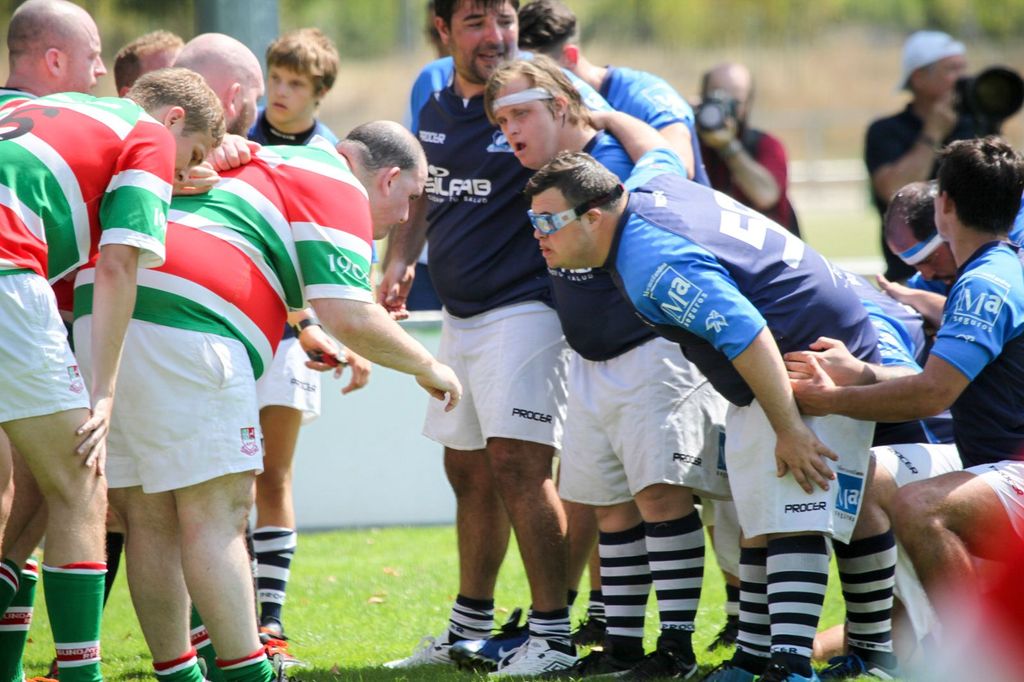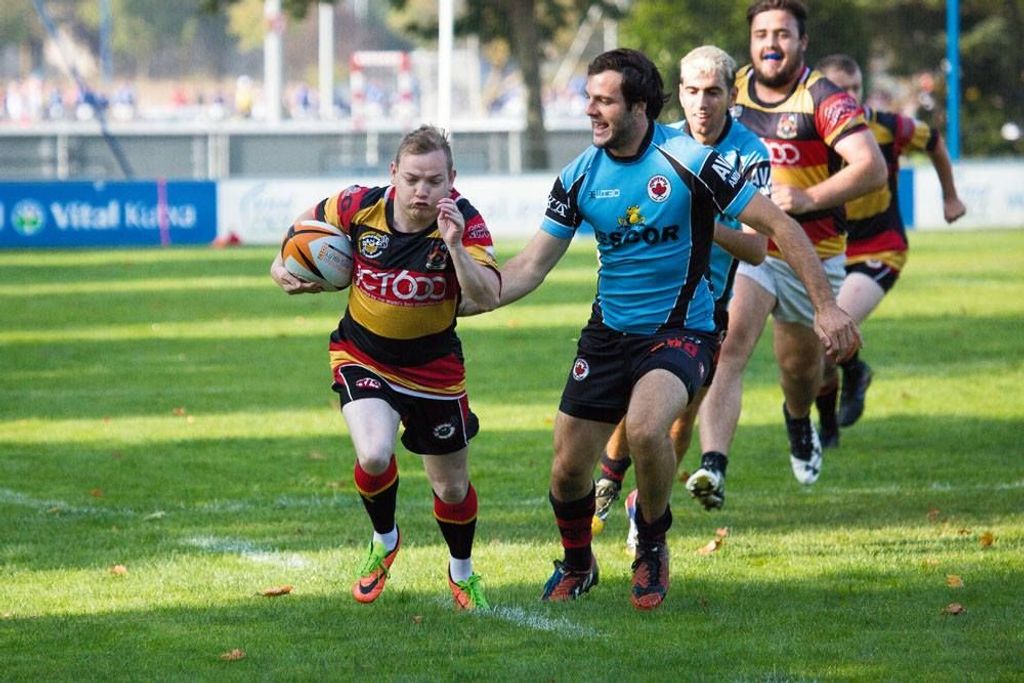For a place not readily associated with 15s rugby, Bradford has been the focal point for two important developments in the sport’s history.
Exactly 125 years after it became the birthplace for the world-renowned Barbarian F.C, the West Yorkshire city was also the venue for the inaugural International Mixed Ability Rugby Tournament (IMART).
At that point in 2015, mixed ability rugby was only played in small pockets of Europe, including Bradford, but the sport was growing quickly and there was an appetite for a showcase event.
“We thought, why not put everything together and stage our own version of the Rugby World Cup,” said Martino Corazza, one of the guardians of the sport alongside International Mixed Ability Sports (IMAS) co-director and fellow teacher, Mark Goodwin.
“We had support from Bradford City Council and the RFU. The timing was ideal because the Rugby World Cup was in England in September and ours was in August, so it acted like a bit of a lead-up event.”

A hive of activity
Turin-born Corazza and Goodwin’s paths first crossed when the Italian set out to discover if there were other teams elsewhere in Europe similar to the one that he managed at Chivasso Rugby, to the north of his home city.
Initially, he was introduced to Gwilym Lewis, manager of the long-standing Llanelli Warriors side, before coming across the Bradford & Bingley Bumble Bees – the first mixed ability club in England. Now there are 60 teams worldwide affiliated with IMART, with more teams springing up all the time.
The Bumble Bees had been founded in 2009 by one of Goodwin’s students, Anthony Brooke, a determined young man with cerebral palsy and learning difficulties.
Brooke was frustrated that his condition, or rather the misconceptions around it, were holding him back from playing full-contact rugby.
From humble beginnings, the Bumble Bees can now call upon 40 registered players and their success has helped spawn other teams across the north of England.
As an ambassador for the sport, Brooke helps to show community clubs the value of having a mixed ability team within their setup.
“Many clubs see mixed ability as a way to re-engage with the local community,” said Corazza. “It doesn’t matter how good you are, it doesn’t matter if you win on a Saturday, it’s about a social element, engaging with friends and family, supporters in the clubhouse, buying beers, memberships. Those are values that a club understands.”
Bringing down barriers
Corazza says within minutes of hearing Brooke speak, the rugby public relate to him as one of their own.
“Anthony has badly injured his knee, done his Achilles in and fractured his hand while playing rugby so when he talks to an audience in a rugby club, they can relate to him because they were the sort of injuries that they might have had themselves,” Corazza added.
“People see the rugby player, and they look beyond the speech impediment or whatever. That’s a great reflection on mixed ability rugby. Why shouldn’t he be able to play because he has a learning disability? He understands there is a risk and he is willing to take that.”
Upon discovering the small network of teams in the UK, Corazza came to Bradford and never went back.
He set up IMAS alongside Goodwin in a bid to put mixed ability sports on a sound organisational footing as they set about their aim of challenging the orthodoxy of grassroots sports provision. The success of the rugby model has led to other sports getting involved, such as rowing and boxing.
“My idea in 2012 was to get some European funding, spend a few months in England, share practice, share learning, then go back to Italy. It didn’t quite work like that. That was eight years ago and I’m still here,” said Corazza.

A good fit
Corazza, a flanker in his playing days in Italy and then with the Bumble Bees, is empathetic to the feelings of the people drawn to mixed ability rugby.
“I was a bit overweight as a teenager and I just wanted to fit in,” he said.
“I needed to get the frustration you get in those teenage years out of my system and as I didn’t like football, which is everywhere in Italy, someone said, ‘why don’t you give rugby a try?’
“I was hooked straight away, I felt it was my sport.
“There is such diversity on a rugby pitch, it is open to everyone.
“It doesn’t matter if you are tall or short, whether you have a disability or not, and it is for every age and ability.
“Part of its success is that it is the same version of the game, and you still have the same bruises and are able to share a pint afterwards.”
While mixed ability rugby helps to bring down barriers, the COVID-19 pandemic was one hurdle the sport could not overcome.
Pride of the Pumpas
IMART 2020 – the third edition of the International Mixed Ability Rugby Tournament – was scheduled for June 2020 but has had to be put back a year due to the pandemic.
Still, when the 28 teams do eventually take to the field in Cork, home to IMART 2015 champions Sunday’s Well Rebels, it will reflect the huge strides taken by the sport.
“We had 12 teams at the first tournament and 16 at the second tournament in Spain, and now I think we’re looking at 28, which shows the exponential growth from Bradford to now,” Corazza explained.
“Take the Pumpas from Argentina (the 2017 winners). They came to Bradford with three players to see what was going on and ended up playing with the Italian team.
“In 2017, they came back to Vitoria-Gasteiz in the Basque country with two full teams and 80-odd people.
“Next year, all being well, they’ll travel with four teams, and will definitely be top of the list to win it again.
“Argentina now has 10 teams, from Cordoba to Patagonia, and they have been on tour to Ecuador and Uruguay.”
With increasing support from national federations and unions, there are also teams beginning to emerge in Chile, New Zealand, Paraguay, Portugal, the Netherlands, Canada and Singapore. Bradford, however, remains the spiritual home of mixed ability rugby … and the Barbarians, of course.
To discover more about mixed ability rugby and rugby for all, visit imartworldcup.org/ and world.rugby/rugbyforall
